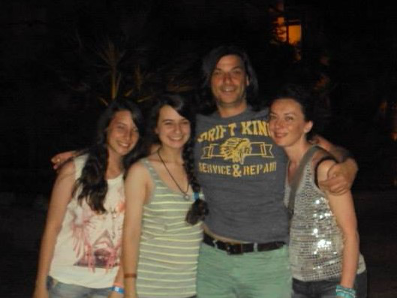Dealing with loss

CPD with Impact: Appraisals
July 30, 2020
How long does it take to learn a language?
June 1, 2021When a part of you goes forever
Dealing with loss: what does it mean?
You deal with loss when you lose a person or something very dear to you. The pain that loss causes is personal and a natural response to change. This type of pain manifests itself through physical or emotional symptoms. There is no right or wrong way to deal with it; however, loving and respecting yourself is a rule that helps you throughout life.
I lost my father precisely 8 years ago today (26 August 2012). He was the centre of my universe and I miss him every day. I miss him because, apart from being my father, he was a man with a brilliant mind: he was deeply curious, he knew no boundaries, he pushed for social change, he was extremely educated and knowledgeable, he was very funny, he was truly exceptional in so many ways, including his quirks.

As young children, according to Piaget’s theory of cognitive development, we develop the process of reversibility (the ability to recognise that numbers or objects can change and return to their original condition) and this is what moves us from living is a perpetual forever status to one in which things change. However, this does not mean that as adults we are fully equipped to deal with big changes, like for example losing someone dear to us, or something important to us like a job, a role, etc.
What is the origin of this pain?
According to Mark Manson it is linked to meaningfulness. We need our life to be meaningful, surrounded by meaningful people, events, etc. when one of these meaningful pieces is gone then it affects our perception of how meaningful our existence is. Imagine that every meaningful person in your life holds a mirror in which you can see a partial image of yourself; when that person is gone from your life then you also lose a part of yourself so you are forced to reconsider yourself and what does living meaningfully means without them. It probably sounds terrifying and at times it is, but it is also one of the most natural processes in life: it is a fact that eventually everything is lost. But before that there is so much to live for and enjoy!
What does this process look like?
- The five stages of grief are: denial, anger, bargaining, depression, acceptance. However, like Elisabeth Kübler-Ross explained herself, it doesn’t mean you will go through all of them or that you experience them in this sequence. In fact, you may experience none of them. They are simply a point of refence in understanding common feelings when grieving.
- Common physical symptoms are insomnia, nausea, weight change, aches and pains.
- Common emotional symptoms are fear, anger, shock, sadness and guilt.
So, take positive actions. The key here is to recognise what you feel or do that is not your normal and work on that; often is easier to look after ourselves physically more than emotionally. For the emotional aspect it is important to love and respect yourself. You can achieve this by 1. Acknowledging your pain 2. Recognise your triggers 3. Seek help when you need it.
When do you know that the grieving period is over?
The grieving period is personal and there are no rules about its length. What is difficult is the sense of guilt that you may experience when you are ready to let grief go. Why? Because in the back of your mind there is the thought that moving on means forgetting. You can never forget so don’t worry: you can safely let go and move on. The memories you build will always stay with you and the meaningful moments you spent with them will remain unreplaceable, special.
So, today I enjoyed a day with him: I went through some old photos, some videos, some articles he wrote and enjoyed the company of his memories, the warm comfort of feeling loved, the gratitude for having him in my life. I love him now as I always have.
Written by Lara Panzini
About the author
Lara Panzini started her carrier in education as a qualified primary school teacher. She holds a BSc (First Class Honours) Professional Studies from London University – Academic research methods applied to the workplace. She specialised in language teaching by obtaining a TEFL certificate and a certificate in Teaching Italian as a Foreign Language, RSA Diploma in Teaching Foreign Language to Adults (DTFLA), RSA Assessor Award: Training and Development (NCVQ: Level 3) and is a Business Cultural Trainer.
Related posts
Still have questions or need help? Give us a call at
For Dubai and Middle East Office Contact


